Featured Talks
-
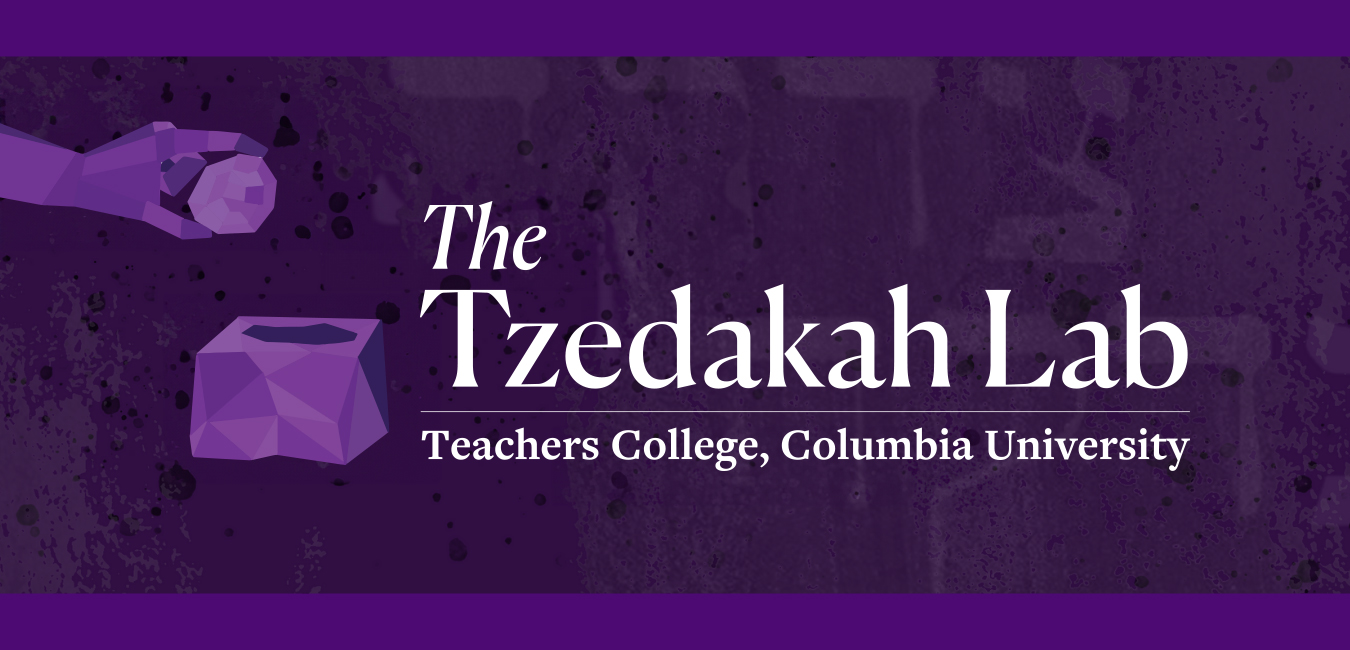
Philanthropy in Action: Elevating our Work through Research-Practice Partnerships
A co-hosted webinar presented by the AERA Philanthropy & Education SIG and The Tzedakah Lab
Listen to an insightful webinar that focuses on the vital role of research-practice partnerships in driving philanthropic efforts within education. This session explores how funders, researchers, and practitioners can collaborate to align research insights with on-the-ground practices, creating meaningful change in education, schools, and communities. Learn from experts how to harness the power of collaboration to enhance equity and access in education!
Featuring:
Noah D. Drezner, He/Him/הוא, Vice Dean for Academic Success & Strategy; Professor of Higher Education; Principal Investigator, The Tzedakah Lab; Teachers College, Columbia University
Jenny Irons, she, her/s, Senior Program Officer, William T. Grant Foundation
Oren Pizmony-Levy, He/Him/הוא, Associate Professor, Department of International and Transcultural Studies, Teachers College, Columbia University
Jenny Zhang, she/her, Associate Program Officer, The Spencer Foundation
-
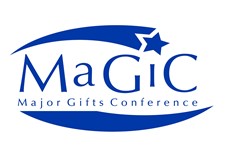
Keynote: Activating Prospects' Identities through Data Driven Philanthropy
MaGiC: Major Gifts at Independent Colleges
-

Keynote: Engaged Alumni Aren’t Born That Way: How to Use Smart Data to Increase Alumni Engagement and Giving
The Association of Private College and University Alumni Directors
How does an alumnus/na/x's identities impact their giving and engagement with their alma mater? How do different attitudes increase or decrease the likelihood of a donation? What data and resources do we need to increase success and build predictive models? In an interactive workshop based on research, we will explore these questions and how we might apply the emerging theories into practice.
-
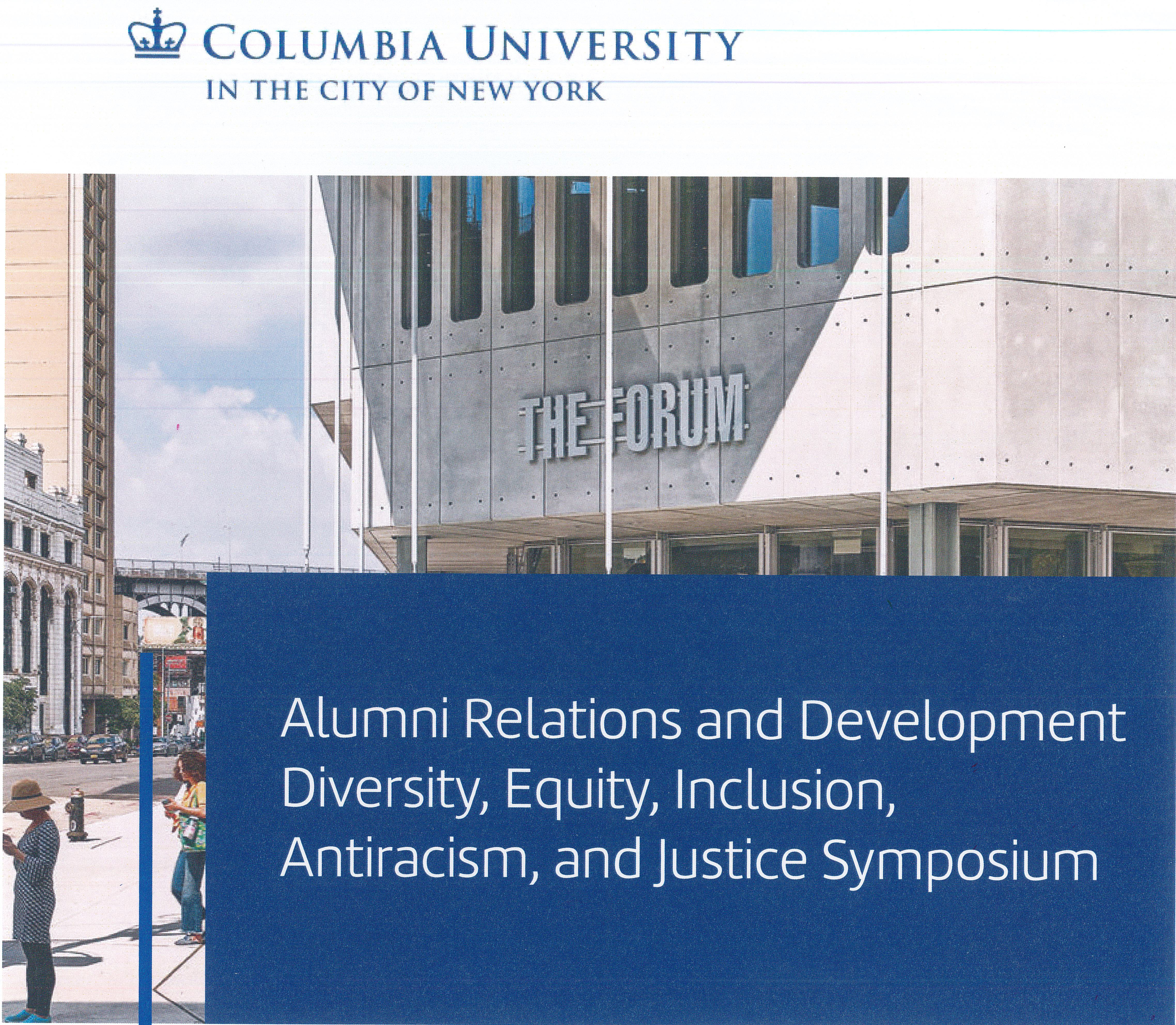
Identity Based Philanthropy: Putting DEIAJ(B) into Action
Columbia University: Alumni Relations and Development Diversity, Equity, Inclusion, Antiracism, and Justice Symposium
Exploring identity-based philanthropy research and its implications for practice in alumni engagement and philanthropy.
-

Welcome Plenary: Transformational Giving: Donor Motivation in the 2020s
Association of Governing Boards: 2022 Foundation Leadership Forum
The greatest intergenerational transfer of wealth in human history is underway, and higher education stands to benefit from an extraordinary influx of philanthropic support in the coming years. Changes in transformational giving over the past decade included trends toward “venture philanthropy,” greater donor focus on “ROI,” and in many cases increased donor engagement and involvement. New trends are developing as well. Names like Scott and Smith have emerged alongside Gates and Bloomberg. What should we anticipate will motivate transformational giving in the years to come, and how might that change the work of foundations? Join an extraordinary cross-sector panel for a deep exploration of that question.
Moderator:
Carlton Brown, former president, Clark Atlanta University and Savannah State UniversityPanelists:
Noah D. Drezner, professor of higher education, Teachers College, Columbia University; founding editor, Philanthropy & Education
Alfred E. Harrell, III, CEO, Southern University System Foundation; CEO, The Valdry Center for Philanthropy at Southern University
Ruth Simmons, president, Prairie View A&M University; trustee emerita, Rice University; former trustee, Princeton University and Howard University; president emerita, Brown University; former president, Smith CollegeRead my AGB Blog: A Road Toward Racial Equity and Justice through Philanthropy
-
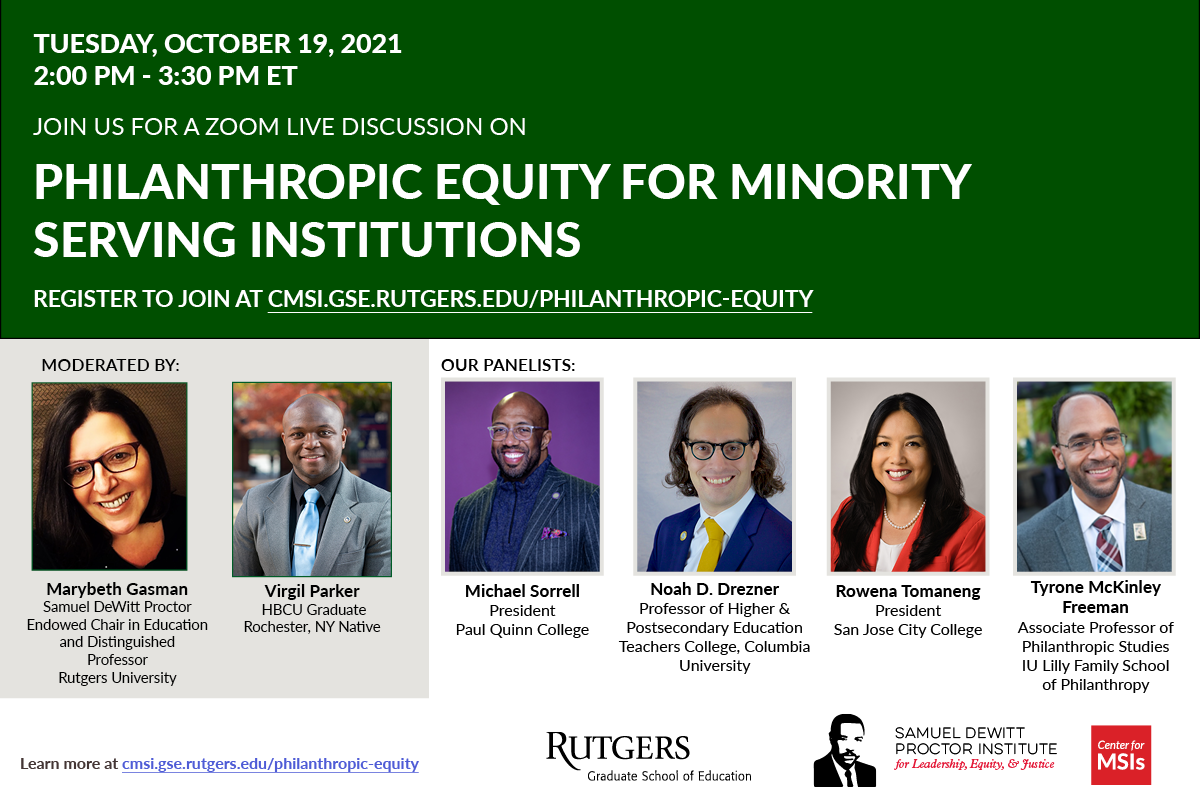
Philanthropic Equity for Minority Serving Institutions
The Samuel DeWitt Proctor Institute for Leadership, Equity, and Justice & Rutgers Center for Minority Serving Institutions
Minority Serving Institutions (MSIs) serve large numbers of low-income and students of color and are critical to our nation's success. Yet, many of these institutions are under-resourced and experience philanthropic inequities when compared to their predominantly White counterparts. This is the first webinar in a two-part series that will highlight MSIs, bring attention to their philanthropic challenges, and discuss opportunities for leveraging institutional identity, data, and partnerships to improve their funding opportunities.
Media Coverage Watch on YouTube -

The Power of Data in Knowing Our Alumni: Using "in house" Analytics to Increase Engagement and Diversity
CASE Chief Advancement Officers Conference
In this interactive session we delved into the most recent research on alumni engagement and giving, played close attention to emerging research on alumni of color and those in the LGBTQ communities. Building off of this academic research we discussed how to use data you currently have about your alumni and simple strategies to collect new data from your constituents in order to build a more inclusive and culturally sensitive engagement programs that will increase participation. Participants left with ideas on how to translate data analytics into actionable programs for alumni relations, the annual fund, and beyond. -

Queering Philanthropy: Emerging Research on Alumni Giving from and Supporting the LGBTQ Communities
AADO-CASE Conference on Diverse Philanthropy and Leadership
Philanthropy is often defined by the literature through a wealth-White-heterosexual-male lens. However, all communities and members of marginalized social identities have the potential to give, and they do! One aspect of my research focuses on philanthropy in non-traditional donor communities. Building off of research from the two national studies, the National LGBT Alumni Giving Study and the National Alumni Giving Experiment, this lecture will explore how and why people in the LGBTQ communities engage in philanthropic behaviors, specifically within the context of giving to higher education.
-
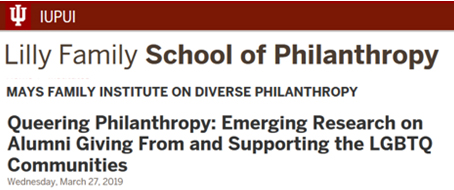
Queering Philanthropy: Emerging Research on Alumni Giving From and Supporting the LGBTQ Communities
Indiana University - Lilly Family School of Philanthropy - Mays Family Institute on Diverse Philanthropy Sponsored by the Strada Education Network
Philanthropy is often defined by the literature through a wealthy-white-heterosexual-male lens. However, all communities and members of marginalized social identities have the potential to give, and they do! One aspect of Drezner's research focuses on philanthropy in non-traditional donor communities. Building off of research from the two national studies, the National LGBT Alumni Giving Study and the National Alumni Giving Experiment, this lecture will explore how and why people in the LGBTQ communities engage in philanthropic behaviors, specifically within the context of giving to higher education. Drezner's talk will also explore how straight Americans might choose to support queer communities with their giving.
Watch on YouTube -
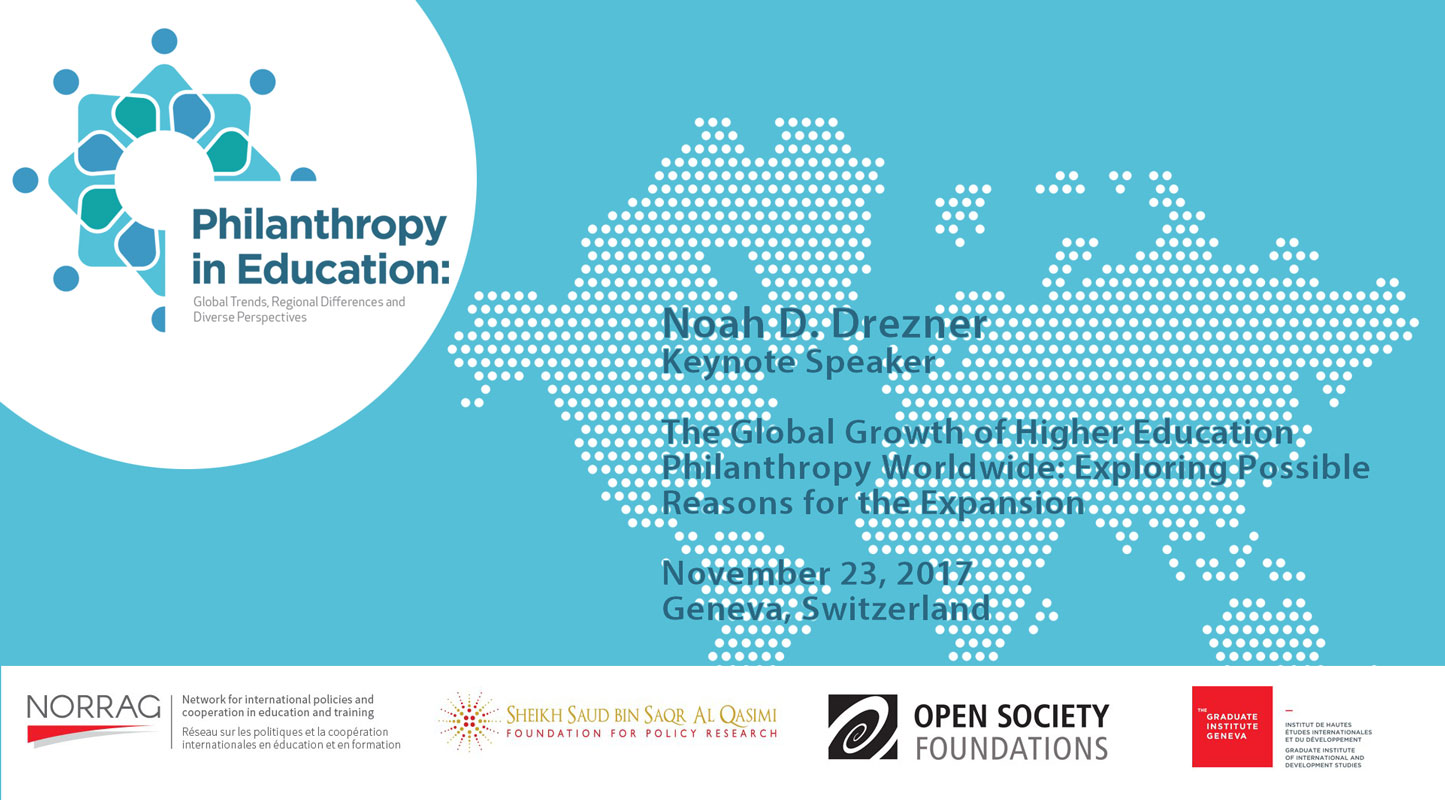
The Global Growth of Higher Education Philanthropy Worldwide: Exploring Possible Reasons for the Expansion
NORRAG - Philanthropy in Education: Global Trends, Regional Differences, and Diverse Perspectives
The role of philanthropy and fundraising in many institutions of higher education around the world is becoming means to supplement decreases in government support and as a way to strive for prestige. However, while US philanthropic giving is rooted in the establishment of Harvard College in 1636 and a more concerted and systematic fundraising practice in the last 50 years, institutions of higher education throughout the rest of the world are only beginning to ask for alumni, foundation, and corporate support. In this address I explore three possible explanations for this expansion: (1) a functional need; (2) an isomorphic strive for prestige and legitimacy; and (3) a borrowing and lending of “best Practices.”
-
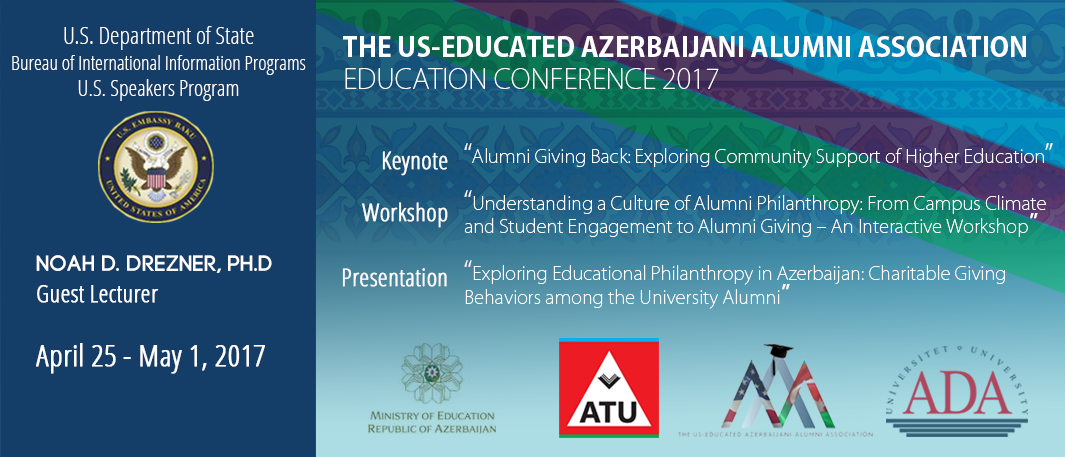
U.S. Department of State, Bureau of International Information Programs, U.S. Speakers Program
The US-Educated Azerbaijani Alumni Association
Azerbaijan is a country where philanthropy emerged as a result of oil exploration at the end of 1800s. Hence, it has history of industrial philanthropists and their educational initiatives, in addition to the religious giving, as a primary type of philanthropy. During the Soviet Union, alumni philanthropy was not exercised. The studies show that Azerbaijan ranks 131st in the World Giving Index. Therefore, considering the history and socio-cultural context of the country, the alumni giving back should be studied, researched, and the results should be used by the policy makers, university administrators, and education researchers.
-
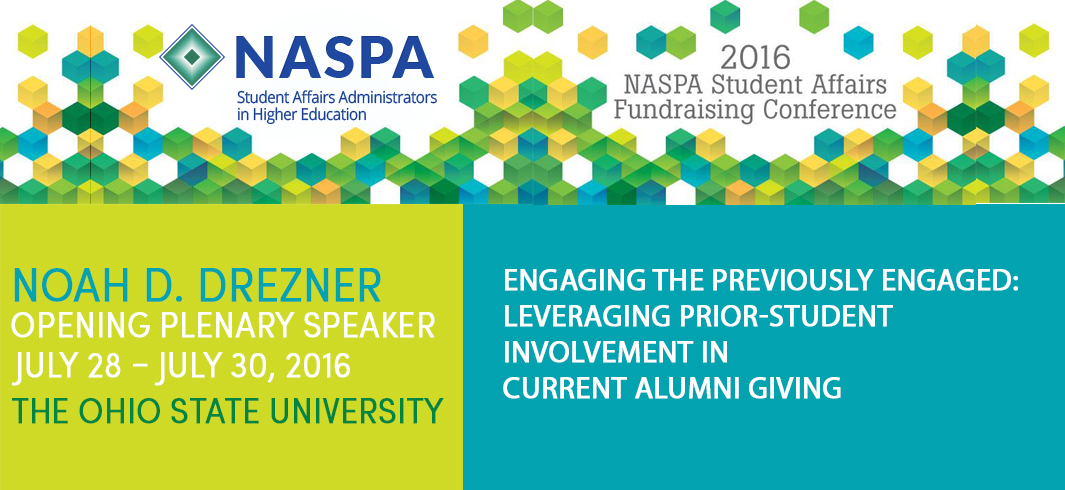
Engaging the Previously Engaged: Leveraging Prior-Student Involvement in Current Alumni Giving & Social Identity & Fundraising: An Interactive, Empirically-Based Workshop
NASPA - Student Affairs Administrators in Higher Education Fundraising Conference
Fundraising is both an art and a science. An art in that there is a dance to match a donor’s interests and an institution’s needs. A science because there are some proven predictors of giving that can help in the dance that closes the gift. Research shows that those involved in student activities are more likely to give. We will explore the importance of using data in fundraising, identifying potential donors, and how it can enhance your success.
Identity-based philanthropy is an emerging field and topic of research. The key premise is that a person’s social identities can affect their philanthropic giving. In this interactive workshop we will explore the topic and briefly discuss recent findings from two national studies, The National Study of LGBT Alumni and The National Alumni Giving Experiment and together work through how you might create and implement these strategies in your student affairs programs.
-
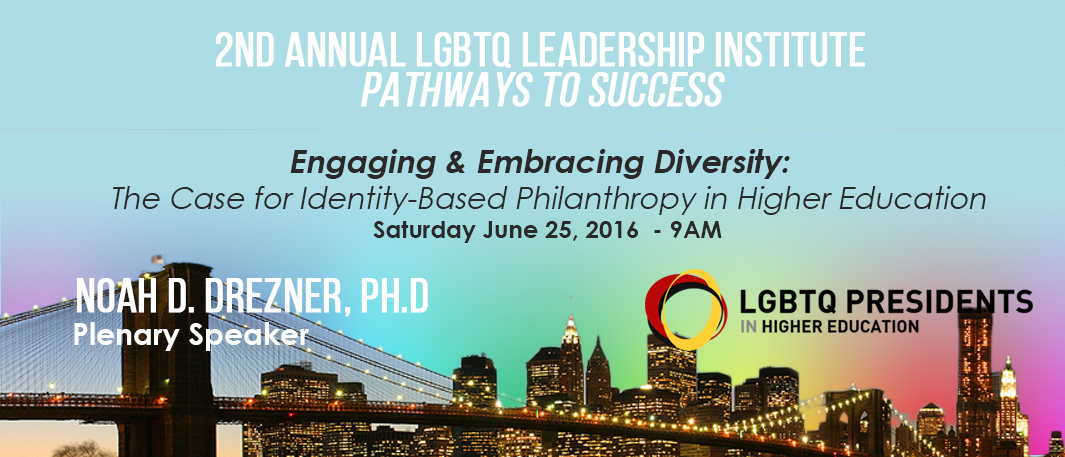
Engaging & Embracing Diversity: The Case for Identity-Based Philanthropy in Higher Education
LGBTQ Presidents in Higher Education Leadership Institute
Two of the most important trends in American higher education are the increase of institutional diversity and the decrease of funding to higher education. There is a unique link in these two trends. As institutional diversity increases in American higher education, so does the diversity of our alumni populations. And, with the decrease of funds we are seeing an increasing reliance on alumni giving and other forms of philanthropy in all sectors of higher education. Yet, for the most part, institutional advancement officers do not make the link.
There are cultural differences in philanthropic giving across race, gender, religion, and sexual orientation and gender identity. In this talk I explore how social identity effects philanthropic giving and how higher education can engage and embraces this diversity through adopting identity-based philanthropic solicitation practices.
-
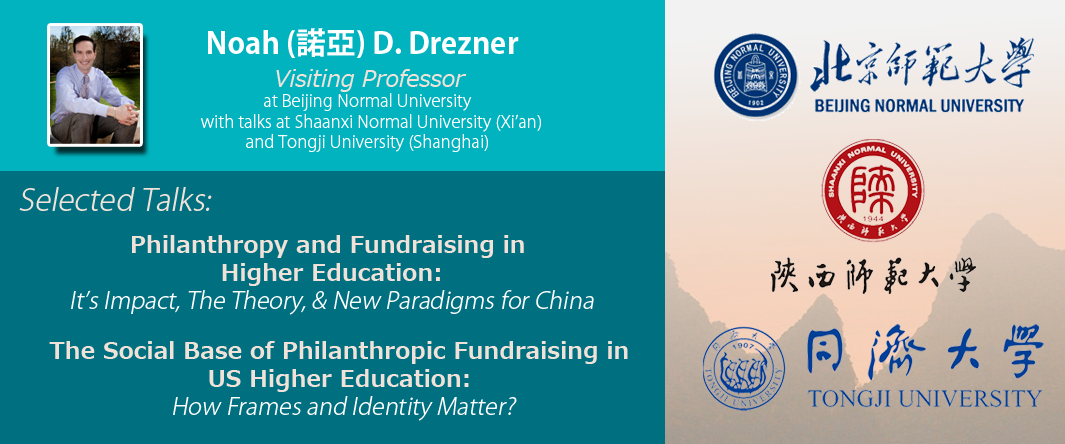
Chinese Speaking Tour
Professor Drezner was named a Visiting Professor at Beijing Normal University from 2016 through 2021. In his first visit Drezner spoke at three Chinese universities, mentored students on thier higher education philanthropy and fundraising research and began conversations regarding potential research collaborations.
-
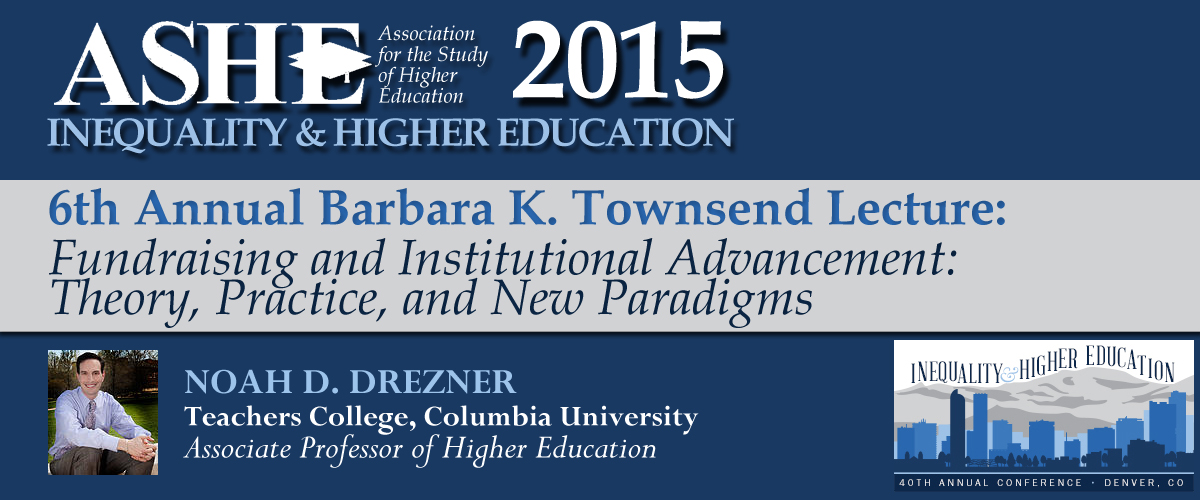
Fundraising and Institutional Advancement: Theory, Practice, and New Paradigms
Association for the Study of Higher Education (ASHE) 6th Annual Barbara K. Townsend Lecture
Professor Drezner in his Barbara Townsend Lecture, Fundraising and Institutional Advancement: Theory, Practice, and New Paradigms gives an overview of the impact of philanthropy on American Higher Education, arguing that its study is more central to our field than most academics think. Drezner’s talk includes a discussion of the state of current research, theoretical perspectives to the study of philanthropy and fundraising and his view on the future of the field.
-
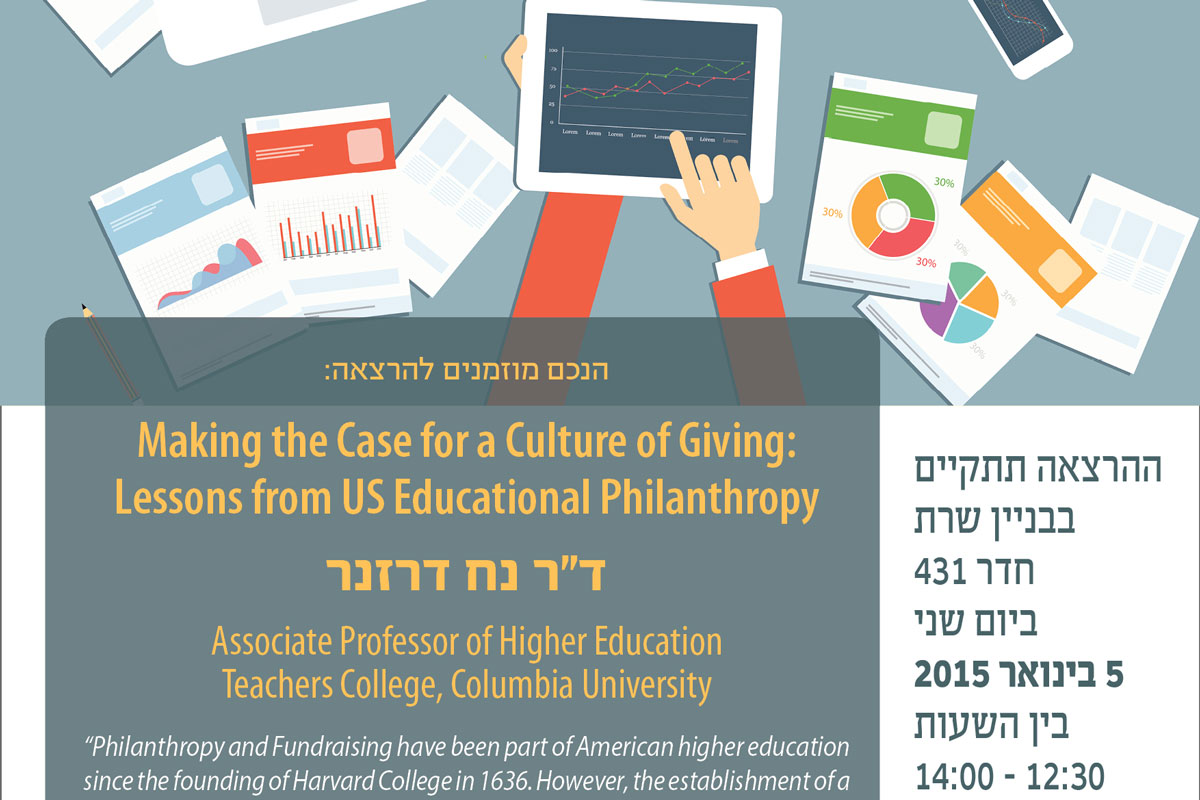
Making the Case for a Culture of Giving: Lessons from US Educational Philanthropy
The Institute for Law and Philanthropy, Tel Aviv University
Philanthropy and Fundraising have been part of American higher education since the founding of Harvard College in 1636. However, the establishment of a culture of giving by alumni in public institutions is a more recent phenomenon. Over the last 70 years, following the decrease in state appropriations, more and more public institutions in the United States have had to turn to alumni to make ends meet. This phenomenon is also evident in other countries, such as the United Kingdom. Professional fundraisers in the United Kingdom have been tasked with creating a “culture of philanthropy” to help replace the funding that used to be provided by the government.
As funding drops towards Israeli higher education, Tel Aviv University and other institutions will likely need individual giving to support the needs of the institution and to remain leaders within the academy. This talk reviews the research on alumni engagement, donor motivations, and solicitation strategies that can help create that culture of philanthropy.